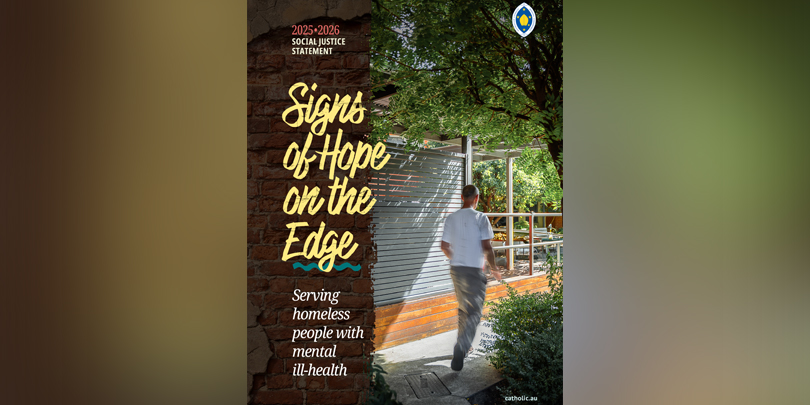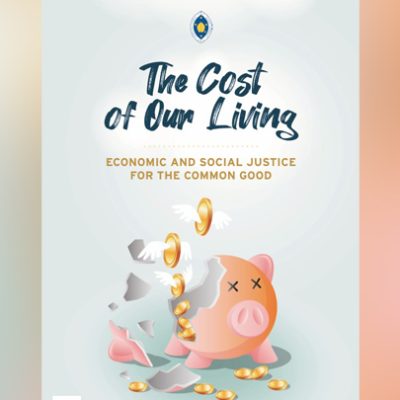
This year’s Social Justice Statement invites people to look beyond themselves and their immediate relationships, and to focus on those for whom God has a special care, writes Fr Andrew Hamilton SJ. Source: Eureka Street.
This year has seen the release of the 86th Social Justice Statement. The topics of the statements are an index of the social issues with which the Catholic Church has been concerned, ranging from war, communism, wages and strikes to education, refugees and prisons.
This year, the focus is on homelessness and mental ill-health. Like earlier statements, it reveals both the pressing issues of the day and the preoccupations and changing public attitudes that underlie them.
In the title of this year’s statement, the introductory words Signs of Hope on the Edge suggest concern at a world short on hope, one that allows people to live on the edge. In such a world, any consideration of social justice must encourage hope and identify the trends that erode it.
The statement describes the hard lives of people who are homeless and mentally ill – conditions that often run together. People with mental illness are often too poor to afford to own or rent housing. The anxiety, isolation and ostracism of homelessness, too, contribute to mental illness.
In its address to Catholics, the statement reminds us of the breadth of God’s love and concern for us and for our world. It grounds in Jesus’s life and mission the call to notice and to attend to people who are homeless and suffer from mental illness.
The Church should be a house of hospitality and relief. Though necessary, however, this personal response is not enough. In our culture, the place of religion and of the churches is increasingly narrowed to our private and individual lives. They are seen to have nothing to say about the economy or social issues. Faith and justice are then confined to our individual relationship to God and to other people.
Catholic Social Teaching, which underlies the statement, also attends to government laws and social programs about work, family, housing, taxation, and assistance to people who are unemployed and otherwise disadvantaged. It defines the responsibility of society to attend to the needs of persons which, as individuals, it cannot meet.
Through stories and analysis, the statement draws attention to society’s failure to uphold basic human rights to shelter and health care.
Fr Andrew Hamilton SJ is consulting editor of Eureka Street, and writer at Jesuit Social Services.
FULL STORY
Signs of hope on the edge (By Fr Andrew Hamilton SJ, Eureka Street)






